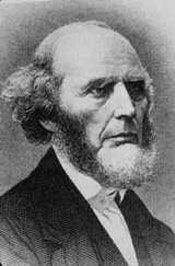I’ve been thinking about the fundamental difference between non-Christian and Christian belief. When I use the word “belief” I mean it in its radical sense, “To live in accordance with a truth.” One might say, “Christian practice”, “Christian orientation” or “Christian living”. What is so different about living in a Christian way? Besides the rituals and particulars to Christianity, I’ve wanted to identify the contrasting features of the Christian life. What are the guiding principles that control the behavior of a Christian?
The following is by no means a scholarly attempt at systematic theology, but a collection of some general ideas that have given me clarity about the fundamental vision of Christianity. I’ve taken these concepts from authors I’ve read over the years and tried to relate them to each other. I don’t necessarily agree with everything each of these authors teach, but I have found helpful their differing perspectives. I’ve grouped the fundamental difference between non-Christian and Christian belief into three main categories:
“Selfishness” versus “Love” (or “Living for Self” versus “Living for Others”)

This way of looking at things makes the difference between non-Christian and Christian belief center around what we supremely value. The non-Christian is ultimately motivated by his own interests in everything he does. His own happiness takes precedence over everything. Even though on the outward it may appear that he does things for the happiness of others, inwardly he is secretly motivated by his own well-being when carrying out his acts of kindness. Whereas the Christian, values everybody and everything according to their real worth and therefore doesn’t put his own happiness supremely above that of everyone else. He desires the happiness of others for their own sake, not because it will make him happy. It’s not that the Christian doesn’t want to be happy or that he doesn’t care about that, but that he doesn’t make his own happiness the ultimate goal in his life without regard to others.
A few scriptures come to mind:
- Luke 10:25-28 – Love God supremely and love your neighbor as yourself.
- 2 Cor. 5:15 – “and He died for all, that they who live should no longer live for themselves, but for Him who died and rose again on their behalf.”
- 1 Cor. 10:24 – “Let no one seek his own good, but that of his neighbor.”
- Phil. 2:3 – “Do nothing from selfishness or empty conceit, but with humility of mind let each of you regard one another as more important than himself.”
One of the main proponents of this model was Charles Finney, a nineteenth century evangelist credited with some of the most powerful and influential revivals in America. Some important quotes by Finney:
“[A] supreme regard to our own happiness is inconsistent with true religion.” (True Submission, p. 31)
“An individual who is converted is benevolent, and not supremely selfish. Benevolence is loving the happiness of others, or rather choosing the happiness of others.” (True and False Repentance, p. 32)
“[Repentance]…consists in the turning or change of the ultimate intention from selfishness to benevolence.” (Systematic Theology, p. 343)
“Mistrust and Autonomy” versus “Faith and Loving Submission” (or “Being Our Own Reference Point” versus “Truth Being Outside of Ourselves”)

This perspective on how non-Christians and Christians differ focuses on our relationship to God and reality. The non-Christian exercises ultimate confidence in himself and is governed by his own thoughts, values and judgment. He doesn’t entrust himself to God and creates his own standard to live by. He is independent from God, in other words, he is his own god. The Christian, however, supremely trusts God and happily embraces God’s direction and authority. He loves God and lives in communion with Him, believing in the goodness of His character. The law of God is the Christian’s delight because it reflects God’s fatherhood and loving leadership. The Christian sees his need to submit himself to reality rather than arbitrarily create his own.
Scriptures that teach this concept:
- Rom. 1:17b “The righteous man shall live by faith.”
- Proverbs 3:5 “Trust in the LORD with all your heart and do not lean on your own understanding.”
- Matthew 19:14 “But Jesus said, ‘Let the children alone, and do not hinder them from coming to Me; for the kingdom of heaven belongs to such as these.'”
- 2 Corinthians 10:12 “For we are not bold to class or compare ourselves with some of those who commend themselves; but when they measure themselves by themselves and compare themselves with themselves, they are without understanding.”
- Psalm 119:97 “O how I love Your law! It is my meditation all the day.”
While this model is so widely used in the Scriptures as well among Christian authors, it’s hard to attribute it to one person, but Watchman Nee has some excellent material on this:
“Before Adam and Eve ate the forbidden fruit their right and wrong were in God’s hand…By taking the fruit of the tree of the knowledge of good and evil, they found a source of right and wrong in other than God Himself. Consequently, after the fall men need not find in God the sense of right and wrong. They have it in themselves…The work of redemption is to bring us back to the place where we will now find our right and wrong in God.” (Spiritual Authority, p. 21)
“Because life is in Him, authority too is in Him. He is our life, therefore He has authority; and when we obey His authority, we have life.” (The Body of Christ, p. 25)
“The Christian life from start to finish is based upon this principle of utter dependence upon the Lord Jesus.” (Sit Walk Stand, p.12)
“Desire for Power” versus “Renunciation of Power” (or “Spirit of Domination” versus “Spirit of Servanthood”)

Looking at the difference between non-Christian and Christian belief through this lens highlights as a defining distinction the concept of power and our approach to it. As Jesus said, “You know that the rulers of the Gentiles lord it over them.” Non-Christians seek advantage over others and wish to wield influence and authority over them. This can be overt (through violence, position, wealth, etc.) or subtle (through manipulation, benefaction, obligation, etc.). The Christian, however, seeks to be the “servant of all” and takes no pleasure in “greatness”. He refuses to use coercion in his relationships and follows His Lord’s example who “did not come to be served, but to serve, and to give His life a ransom for many.” Sometimes this idea is referred to by the term “justice”, or the Greek word “kenosis”, roughly meaning “emptiness” or “powerlessness”.
Scriptures:
- Mark 10:42-45 Gentiles lord it over…greatest shall be servant…Son of Man came not to be served.
- Matt. 5:38-45 Do not resist him who is evil..love your enemies.
- Phil. 2:5-8 “Have this attitude in yourselves which was also in Christ Jesus, who, although He existed in the form of God, did not regard equality with God a thing to be grasped, but emptied Himself, taking the form of a bond-servant, and being made in the likeness of men. Being found in appearance as a man, He humbled Himself by becoming obedient to the point of death, even death on a cross.”
Again, we can hardly point to one exclusive group or teacher who promotes this idea, but I think many would agree that the Anabaptists have been on the forefront of these truths. John Driver, a Mennonite author, has been a favorite of mine:
“The person reached by the gospel of peace and made new by the power of God’s Spirit will not be able to tolerate with a clear conscience self-centeredness in any of its obvious or more subtle forms: a competitive spirit, undue desire for recognition, accumulation of goods, urge to dominate, tendency to discriminate. The Christian who dares to live the gospel of peace will be at odds with society.” (Community and Commitment, p. 78)
“The church as poor and the church giving good news to the poor are two fundamental coordinates of the Christian mission. Wherever the church is seduced by temptations to power, prestige, and property, it cannot communicate the gospel of the kingdom with integrity.” (Images of the Church in Mission, p. 80)
“The death of Christ is a model for what Christians do about enemies, evil powers, the temptation to dominate. The crucial problems of economic idolatry, desire for prestige, and the thirst for power all receive God’s answer at Calvary: generous self-giving sharing, servanthood, and love of enemies.” (Understanding the Atonement, p. 249)
All of these models add something to our understanding of what it means to be a Christian. When we talk about conversion, we mean that there is some change of mind and purpose towards life. In fact, to repent means to change one’s mind, or to turn away and to turn towards. These models help us to see what exactly one turns away from and turns towards. Being a Christian is to be converted along the lines of these models.
In a future post I want to talk about another model that actually combines many of these and is closer to reflecting a fuller Biblical message in my opinion. We call it “Relationship Theology.” I freely admit that I’m not a scholar, but I hope these reflections are helpful.
Reference and Bibliography
All scripture quotes from The New American Standard Version, The Lockman Foundation
Finney, Charles G. True Submission. Grand Rapids: Kregel, 1967
Finney, Charles G. True and False Repentance. Grand Rapids: Kregel, 1966
Finney, Charles G. Systematic Theology. Minneapolis: Bethany House, 1994
Nee, Watchman Spiritual Authority. New York: Christian Fellowship, 1972
Nee, Watchman The Body of Christ: A Reality. New York: Christian Fellowship, 1978
Nee, Watchman Sit Walk Stand. Fort Washington: Christian Literature Crusade, 1964
Driver, John Community and Commitment. Scottdale: Herald Press, 1976
Driver, John Images of the Church in Mission. Scottdale: Herald Press, 1997
Driver, John Understanding the Atonement for the Mission of the Church. Scottdale: Herald Press, 1986